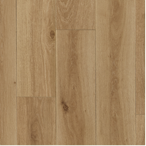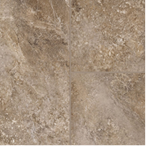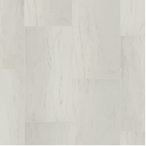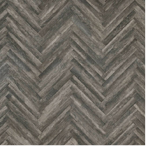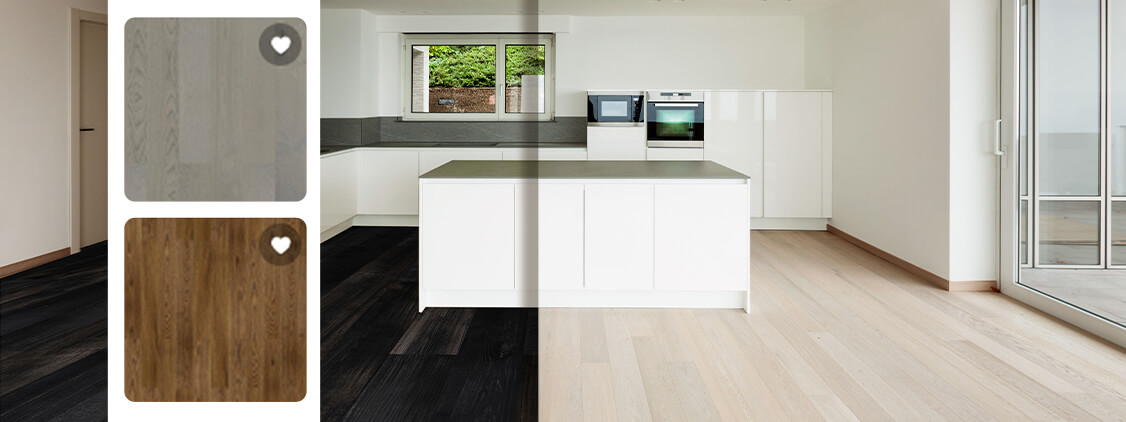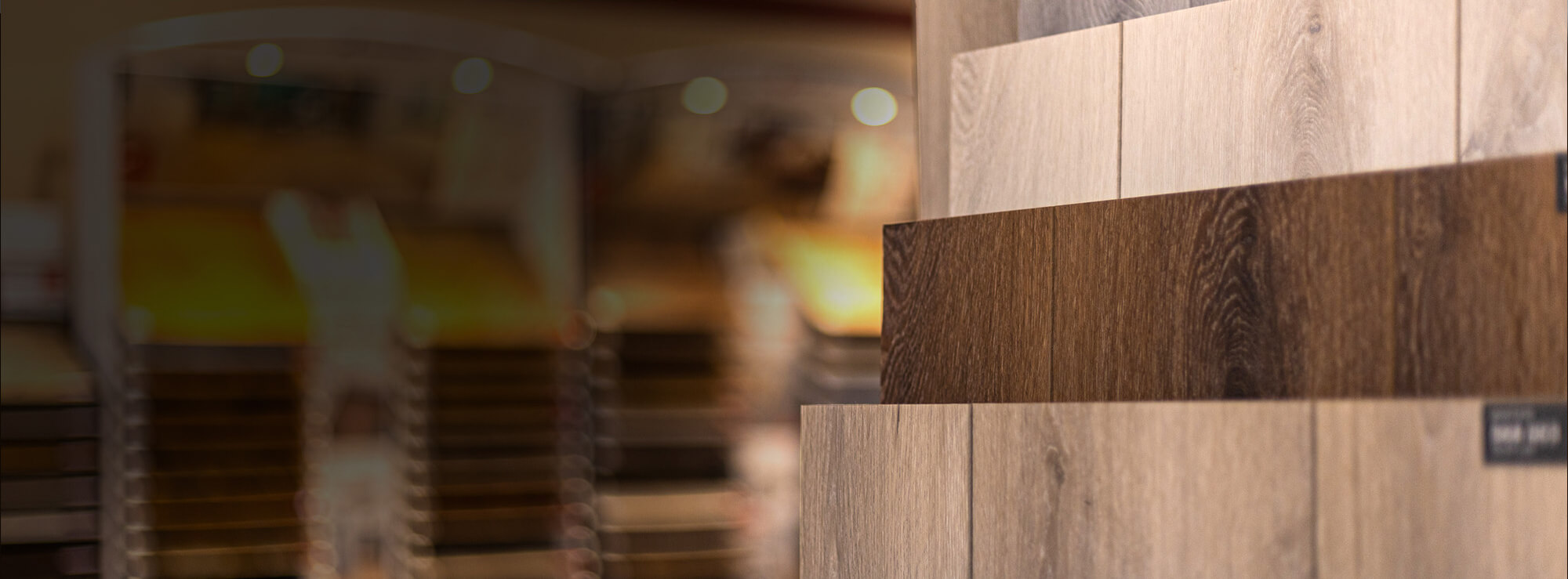Average Cost of Floor Installation in Wisconsin
The average cost of a floor installation in Wisconsin depends on the square footage of the installation, the materials chosen and labor costs.
The Wisconsin Floor Installation Cost Calculator is a valuable tool for homeowners in Southeast Wisconsin seeking accurate estimates for floor installation projects. Whether you're considering hardwood, luxury vinyl, laminate or tile, this calculator factors the size of the area, the type of material and additional services required. While a single 150-square-foot room may cost $1,050- $3,000, new flooring installation for a 2,000-square-foot home reaches upwards of $40,000 depending on the material selected.
How Flooring Material Affects the Cost of Floor Installation
The price of flooring materials varies depending on the type and quality of the material chosen. Within each type of flooring material, there are variations in quality and grade, which also impacts the price. Some materials, like natural hardwood or high-end tiles, tend to be more expensive, while others, such as laminate or vinyl, are more budget-friendly.
Average Floor Replacement Cost in Southeast Wisconsin
While a single 150-square-foot room may cost $1,050- $3,000, new flooring installation for a 2,000-square-foot home reaches upwards of $40,000 depending on the material selected. This wide range is mostly due to material selection. Although there are exceptions, generally hardwood flooring is more costly than vinyl or laminate. Within each material, there are various levels of durability, longevity and quality. The experts at Flawless Flooring are happy to guide you in flooring selection regardless of your budget!
Solid Wood Flooring Types
Oak Hardwood Flooring
Oak hardwood showcases a distinct grain pattern with visible knots and variations in color, providing a warm and inviting appearance. The grain patterns can vary depending on the species of oak, with red oak exhibiting a strong grain pattern and white oak having a smoother, more consistent look. Oak hardwoods withstand heavy foot traffic and are less prone to scratches and dents. With many finishes to choose from, oak hardwood flooring is versatile and suits most interior design styles.
Maple Hardwood Flooring
Maple hardwood flooring is known for its light and pale color, ranging from creamy whites to light golden hues. Its bright and clean appearance adds an airy and spacious feel to any room, making it a popular choice for those seeking a light and neutral flooring option. Maple has a subtle and fine grain pattern with a smooth and uniform texture. It features minimal knots and markings, resulting in a sleek and contemporary look. Maple is considered a dense, durable and hard hardwood, ranking high on the Janka hardness scale.
Hickory Hardwood Flooring
Hickory hardwood flooring is known for its rich and varied colors, ranging from creamy whites to deep reddish-browns. It showcases pronounced grain patterns with contrasting light and dark streaks, giving it a distinctive and rustic look that adds character to any space. Hickory is one of the hardest domestic hardwood species available, making hickory hardwood flooring extremely durable and resistant to wear and tear.
Cherry Hardwood Flooring
Cherry hardwood flooring is celebrated for its warm and rich reddish-brown tones that deepen over time, creating a luxurious and elegant look. Its color ranges from lighter hues with pink undertones to darker shades with deep burgundy accents, adding warmth and sophistication to any room. Cherry wood typically displays a smooth and straight grain pattern
Do Luxury Vinyl Planks Look Like Real Wood?
Yes! Luxury Vinyl Planks (LVP) closely mimic the look of real wood flooring. Advancements in technology and manufacturing techniques have allowed for the creation of high-quality vinyl planks that replicate the texture, grain patterns and visual appearance of various wood species. LVP is designed to withstand high foot traffic and is more resistant to moisture compared to hardwood. Unlike real wood, LVP does not require refinishing or sealing, saving both time and money. LVP is a great low-maintenance flooring option for those looking to upgrade the look of their home.
What is Luxury Vinyl Tile?
Luxury Vinyl Tile or LVT mimics the look of stone or ceramic tile. LVT allows you to achieve the desired look of tile without the cost or maintenance requirements. Luxury vinyl tile provides a more comfortable and softer underfoot compared to traditional tile options. In addition, LVT has sound-dampening properties, reducing noise transmission and creating a quieter environment. LVT mimics the look of:
-
 Marble
Marble
-
 Travertine
Travertine
-
 Slate
Slate
-
 Limestone
Limestone
-
 Ceramic
Ceramic
-
 Porcelain
Porcelain
-
 Hardwood Varieties
Hardwood Varieties
-
 Concrete
Concrete
Laminate Flooring Types
Laminate flooring comes in various types to replicate the look of different materials. Here are some common types of laaminate flooring and the looks they achieve:
Wood-Look Laminate
Replicates different wood species, such as oak, maple, hickory or walnut. Wood-look laminate features embossed grain patterns, realistic texture and a variety of finishes.
Stone-Look Laminate
Imitates the look of natural stone, such as marble, travertine, slate or limestone. It can replicate the texture, color variations, and veining found in these stones.
Tile-Look Laminate
Emulates the appearance of ceramic or porcelain tiles. It can mimic different tile shapes, sizes and patterns, including mosaic designs or intricate tile layouts.
Concrete-Look Laminate
Replicates the industrial and modern look of concrete floors. It can feature subtle imperfections, texture, and varying shades of gray to resemble the appearance of poured concrete.
Specialty Designs
Options such as reclaimed wood, distressed finishes, wide plank styles or unique artistic designs.
Estimates for Floor Installation Costs in Southeast, WI
Flawless Flooring provides free project estimates for engineered wood, prefinished solid wood, luxury vinyl plank, tile and laminate flooring installation for Southeastern WI customers. Try out our Room Visualizer tool to see what will suit your space!
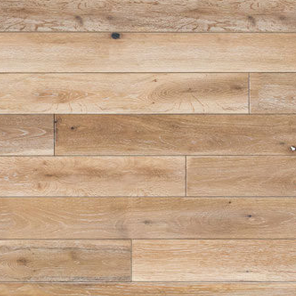
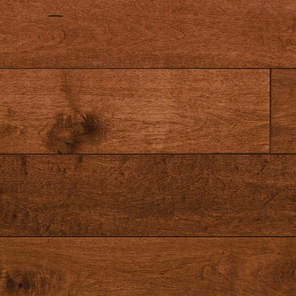
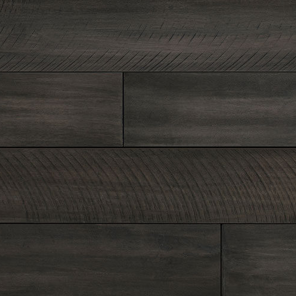
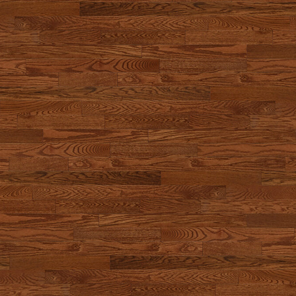
 Marble
Marble Travertine
Travertine Slate
Slate Limestone
Limestone Ceramic
Ceramic Porcelain
Porcelain Hardwood Varieties
Hardwood Varieties Concrete
Concrete